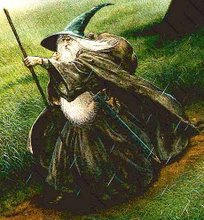The suppression of the conscience - Tolstoy
A quote from Leo Tolstoy's The Lion and the Honeycomb
"People smoke and drink not out of boredom or in order to cheer themselves up, not simply because they like it, but in order to suppress their conscience. If that is true, then the consequences must be awful indeed. Imagine a building constructed by people who, instead of using a rule and a square to get the walls perpendicular and the corners rectangular, used a soft rule which adapted to the irregularities in the wall and a square which bent to fit any angle, acute or obtuse!
But this is just what happens in life when we intoxicate ourselves. Life does not accord with our conscience, so we bend our conscience to fit life."
And I would hazard to guess that we also 'intoxicate' ourselves thusly with entertainment, wealth, anger, sexual dis/misorientation, etc. I'll let Tolstoy continue:
"Everyone will find that at each period of his life he was confronted by several moral dilemmas, and that his well-being depended on the correct resolution of these dilemmas. The resolution of such dilemmas requires a degree of attention which constitutes true labour. In any labour, especially at the beginning, there comes a time when the work seems painfully difficult, and our human weakness prompts us to abandon it. Physical labour seems painful at the beginning; intellectual labour all the more so. As Lessing says, people have a tendency to stop thinking when it first becomes difficult; and it is at that point, I would add, that thinking becomes fruitful. A man [or woman] senses that the resolution of the questions before him demands labour - often painful labour - and he wants to evade this. If he had no means of stupefying himself, he would be unable to drive the questions out of his concsiousness, and he would be forced, against his will, to resolve them. Instead of this , however, he has found means to drive the questions away as soon as they arise. As soon as the questions demanding resolution begin to torment him, he resorts to these means and so avoids the anxiety they evoke. ... And yet it is the resolution of moral questions that constitutes the movement of life."
What think you?


I tend to agree. I think there is plenty of known issues (moral and otherwise) that we just sort of entertain, drink or just generally distract ourselves away from hoping that we're not going to have to face them. Maybe they'll take care of themselves. Sometimes, they do.
ReplyDeleteThe off-shoot of this article would seem to be that we all really ought to try and deal with the issues that face us head on. Even if that just means deciding to not worry about this issue because we believe that it will work itself out with time.
I think that if we can pull it off, this head-on approach to issues, we probably end up worrying less. Even in the face of awful events, engaging the issue has got to produce a stronger mental and spiritual state of being then ignoring it.
Oh, the path of least resistance. So easily found and followed these days. What character I would have if I chose to do the right thing and use the Absolute Square and the Absolute Level when shaping my life. If I could get my eyes off myself and take me out of the center for only a moment, perhaps I would see things clearly.
ReplyDelete